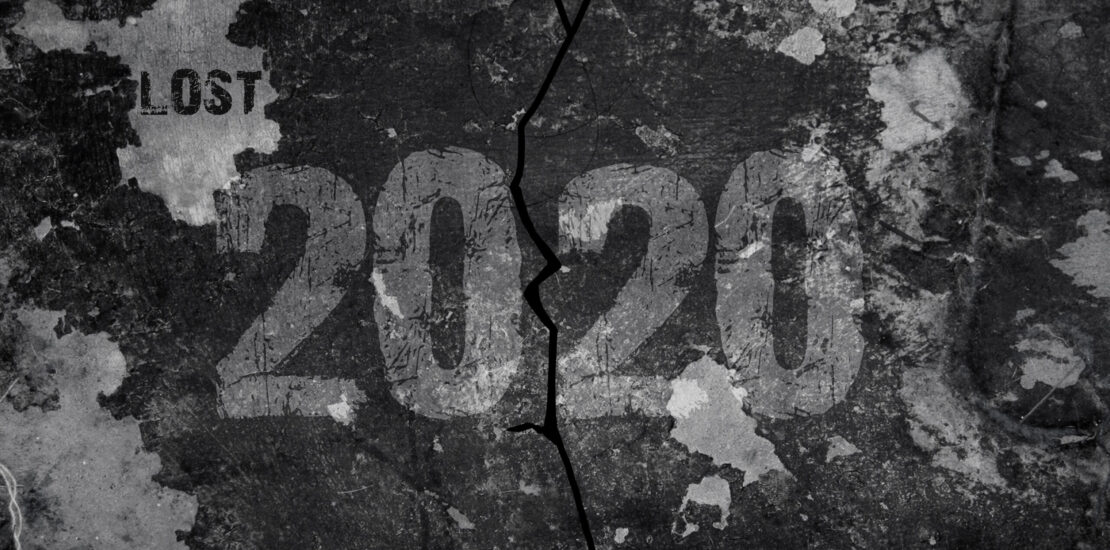- 15 septiembre, 2020
- Posted by: Armando Nuricumbo
- Categoría: Economics

We cannot solve problems by thinking in the same way as when we created them
Albert Einstein
With the COVID-19 pandemic, the world is seriously facing the risk of a lost decade in terms of economic growth. The term Lost Decade is familiar to many of us, as it was widely used to characterize the debt crisis of the 1980s in Latin America. Although it sounds strange to many young people, Mexico once experienced inflation of more than 150% a year, constant devaluations and intense macroeconomic instability. That lost decade of the 1980s created many of the problems of extreme poverty and social inequality that persist to this day. Today we are at risk of facing an even worse outlook.
The two worse decreases in Gross Domestic Product (GDP) in the last 30 years in Mexico were in 1995 (-6.3%) and in 2009 (-5.3%). However, although both were very serious and complex economic crises, the reality is that they were relatively well managed, achieving an almost total recovery in just a couple of years. GDP grew 6.8% in 1996, 6.8% in 1997 and 5.2% in 1998. After the 2009 crisis, GDP recovered 5.1% in 2010, 3.7% in 2011 and 3.6% in 2012. The 2020 crisis could be very different for several reasons.
The Mexican economy had a historical annual contraction of 18.9% in the second quarter of 2020, according to INEGI figures. This implies a destruction of wealth and prosperity at a speed that we have never seen before, and that puts our GDP at levels of 2011. This means that, in a single quarter, we lost the economic growth we had achieved in nine years. On the other hand, the origin of this crisis is also different from the previous ones, which means that the measures taken would also have to be different. For example, the threat to health caused by the virus will create important changes in consumer behavior, which will soften demand for entire sectors such as hotels, airplanes, restaurants or mass entertainment centers, for example. On the employment side, the use of new technologies will make many companies to bet on the acceleration of their automation and digital transformation processes. This will cause many jobs to be permanently eliminated and replaced by technology much faster than it would have happened under normal conditions. In the case of education, for children from well-off economic classes, the pandemic may be an opportunity to continue learning in a different way, either through the use of technology or through greater interaction with their parents or other educated adults. For children from the most vulnerable economic classes, the pandemic may result in a total distancing from the only opportunity they had to improve their chances of social mobility, further exacerbating inequality.
Low-income countries will be particularly vulnerable to this economic crisis, as many of their traditional sources of income are being widely compromised. Among them we find income from tourism, income from remittances, as well as decreases in exports of raw materials, due to both volume and price reductions. The Economic Commission for Latin America and the Caribbean (ECLAC) estimates that, in 2020 alone, more than 45 million people will enter a situation of extreme poverty due to the pandemic. ECLAC itself identifies Mexico as the country that will be most affected in this category, with the percentage of its population that will be in extreme poverty increasing from 11% to 16%. Valeria Moy, general director of the Mexican Institute for Competitiveness (IMCO), points out that it would be until 2032 when our economy could return to GDP levels of 2019. José Antonio Ocampo, economist and former Colombian Minister of Finance, considers that unlike 2009 the recovery will be very slow, because it comes after a period of very low economic growth in Latin America.
We are approaching one of the most difficult moments for our country and for the world, when the real economic effects of all these months of lock down begin to become more visible. Today more than ever it would be important to have a global and perfectly coordinated response from the most influential countries on earth, through multilateral organizations such as the G-20. We would need leaders who put science and the common interest above their political interests and the upcoming elections. We would need a very strategic program of economic support that knows how to differentiate companies and sectors that must be rescued from those that should not. We would need highly efficient public-private investment in health, infrastructure and in other forms and mechanisms that help to maintain employment. We would need robust, transparent social support programs, based on the use of the highest technology, to ensure that aid effectively reaches those who need it, and that its impact can be measured. Unfortunately for Mexico and the world, today we do not have all that. This global crisis has taken us by surprise, at a time when many of the most advanced countries have decided not to lead, or have decided to turn their backs on the multilateral system that has given us peace and prosperity in recent decades, or have decided to prioritize political objectives over scientific truths. Today we face this global crisis more confused and more deluded than ever.
